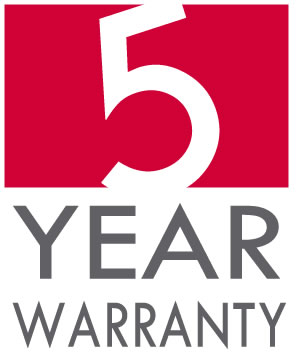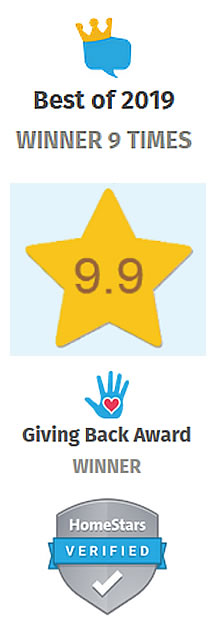Garbage Recycling and Storage Guelph
Garbage Recycling and Storage Guelph
Guelph was founded on St. George’s Day, April 23rd, 1827 with the ceremonial felling of a large maple tree. Guelph is considered to be one of the first planned towns in Canada and was chosen as the headquarters of a British development firm known as the "Canada Company".
The city of Guelph is a vibrant community of over 100,000 people situated in the heart of southern Ontario, just 100km west of Toronto. With one of the premier research universities, and a diverse variety of manufacturing, service, and high technology enterprises, it's also one of the fastest growing economic regions in Canada.
Guelph and its residents are proud of the city’s long, distinguished history of environmental stewardship. Along with municipalities across the country, the City of Guelph continuously works at developing innovative solutions to address issues such as the depletion of our natural resources, climate change and pollution.
The City of Guelph has been involved with implementing and overseeing a number of ground-breaking environmental initiatives aimed at preserving our natural resources while maintaining a high quality of life for Guelph residents.
Outdoor Storage
Guelph’s Transportation Demand Management (TDM) initiative encourages travellers to use alternative modes of travel, such as walking, cycling, public transit, car pooling and car sharing.
The City of Guelph's TDM program designs policies, actions, and initiatives to reduce single occupancy vehicle use, while promoting alternatives that benefit the economy, the community, and the environment. Guelph currently features over 1000 hectares of parks and open space consisting of regional parks, neighbourhood parks, community parks, and natural open space. Located in one of the strongest economic regions in Canada, Guelph is the ideal destination for companies to access major markets and customers. We are a vibrant, growing, historic community of over 118,000 residents offering an educated work force, established economic base and an outstanding quality of life.
Recycling Storage Bins
Municipalities have a key role to play in diverting waste from landfill by managing effective, environmentally responsible waste collection and processing programs.
The City of Guelph is currently in the process of developing a Waste Management Master Plan to guide the future of garbage and recycling in Guelph.
The process identifies municipal best practices, explores waste diversion programs and waste management options, and analyses and evaluates potential programs and initiatives to make long-term recommendations.
The City of Guelph became an official partner of the City of Mississauga's Anti-litter campaign in October 2003. This campaign now includes 26 communities in Ontario.
Garbage Storage
In Guelph, WET (green) and DRY (blue) bags and containers are collected weekly on your regular collection day, while WASTE (clear) bags and containers are collected every other week according to two collection schedules — Week A and Week B. For the last five years dedicated community volunteers have joined City staff and members of the Guelph & Wellington Development Association to pick up unsightly litter that has accumulated over the winter months.
This year, that combined effort resulted in the removal of 11 metric tonnes (that's 11, 140 kgs) of garbage from neighbourhood streets, green spaces and community parks, helping to ensure more enjoyable common spaces for everyone. That's more than 900 bags, plus bulky items.While the City of Guelph currently doesn’t recycle plastic bags through its curbside collection program, a number of local grocery stores offer return-to-retailer plastic bag recycling programs.
As technology continues to advance at a rapid rate, old electronic devices are becoming obsolete as they are replaced with new, smaller models. These materials are not biodegradable and may contain toxic chemicals. It is therefore important that information technology waste does not accumulate in landfills and instead is re-used, recycled, or safely and properly disposed of.
Garbage Recycling and Storage Waterloo
The City of Waterloo is a vibrant, dynamic community, solidly rooted to the past, entrepreneurial and leading-edge today, strongly committed to the future. We are proud of our reputation for hard work and craftsmanship, well earned by our highly skilled, trained labour force. As home to two world-class universities and one of Canada's finest community colleges, Waterloo is very proud of its students and graduates, who bring energy, enthusiasm and spirit to our community.
Waterloo is strategically located in Canada's Technology Triangle and enjoys growing recognition for high standards of education, keen entrepreneurship, and technological innovation. Along with extensive research and development facilities, a strong service sector, technology centres, centres of excellence, and a positive lifestyle, Waterloo offers a competitive edge for investment and growth-oriented companies. Situated within an hour's drive of the Toronto International Airport, Waterloo's 102,000 citizens and businesses are linked by major transportation routes to a marketplace of more than 120 million people, and by high-speed telecommunications to the world.
Patio Storage
Waterloo, in addition to 1,100 acres of parks and trails, offers internationally recognized recreational, arts and cultural facilities -- a unique opportunity for those who enjoy a smaller but very active community.
Waterloo is recognized as a hot bed of festival activity. The community has fully embraced the events either by volunteering, sponsoring, or by coming out to enjoy the multitude of amazing attractions! All of Waterloo's festivals are free to attend. Whether you are into music, food, zany international street performers, medieval times, twinkling winter light displays.
The City of Waterloo is an “environment first” community.This means that at the City, we make a concerted effort to ensure that environmental matters are assessed at the forefront of all of our business activities.
The citizens of Waterloo have also provided valuable input, through visioning exercises and day-to-day interactions with City of Waterloo staff on environmental issues.
Storage Sheds
Waterloo's Official Plan, which is currently being reviewed, will include new policies and zoning that require intensification while minimizing the impacts on adjacent residential neighbourhoods. To date, 800 new apartment units have been developed in areas planned for intensification with another 800 units on the way.
Intensification will lead to better air quality, less automobile/energy use, reduced pressure on Greenfield lands and a better quality of living and working in the inner core.
Waterloo has maintained approximately 26% of its entire land base as green space. The City has purchased over 140 hectares of mature woodland and operates 22 water monitoring stations along with a natural habitat preservation program.
Garbage Recycling and Storage Kicthener
Kitchener is a vibrant, confident and cosmopolitan community, located in the Region of Waterloo, in the heart of southwestern Ontario. Our city is part of one of the most diverse and dynamic economies in North America, built on the foundations of entrepreneurship, innovation and education.
Every year, Kitchener plays host to thousands of business travelers, individuals and families who come to sample our city’s unique blend of history, hospitality and progress.
Kitchener, a vibrant, confident and cosmopolitan community is located in the Region of Waterloo. In the heart of southwestern Ontario, Kitchener is located less than one hour from Toronto, Canada's largest city, and a couple of hours from the American Cities of Detroit and Buffalo via Highway 401. Kitchener is also situated within a 500 mile radius of 60% of Canada's population and 40% of the U.S. population.
Garden Storage
Kitchener is located less than one hour west of Toronto -- Canada's largest city -- and a couple of hours from the american cities of Detroit and Buffalo via Highway 401.
Historically, downtown Kitchener has been the focal point for the Region of Waterloo. It’s been a centre for trade. For politics. For transportation. For entertainment, the arts and culture. Downtown Kitchener is the heart and soul of this community.
Over the next few years, the City will invest more than $86 million in downtown Kitchener, helping to bring to life two new university campuses, a new central library and streetscape improvements that are destined to transform this city centre into one of the country’s finest.
The City of Kitchener has invested in a wide range of top-quality recreation facilities and programs to create a city-wide network of recreational opportunities for all ages and abilities. These recreation activities are supported by the efforts of thousands of dedicated volunteers, who help run programs and organize major tournaments and special events.
Today, with a population nearing 200,000, Kitchener is a vibrant, confident and cosmopolitan community that continues to maintain a strong industrial and business base. It is a City firmly rooted in its German heritage but also keenly aware of the many streams of culture and country that blend together to produce the multicultural community it is today.
Outdoor Storage
True to its history, the Market is an important community gathering place. It’s a multicultural crossroads, embodying the spirit of the community. It’s a source of pride for Kitchener residents. It’s a source of premium produce and unique fare for shoppers. It’s a prime destination for tourists.
From its rural beginnings as an outdoor market in the 1830s, Your New Kitchener Market has emerged as a gathering place, a community icon, a country block in the city where hundreds come weekly to shop, browse, meet their neighbours and friends and experience a feast for all senses.
The Region of Waterloo is responsible for Garbage Collection and Recycling, and operates several landfill operations across the Region.
Garbage Can Storage
Garbage and recycling are collected Monday thru Friday, and on some statutory holidays.
The Region of Waterloo offers Recycling Depots that are open to residents 7 days a week, 24 hours a day. These depots are not staffed and there are no fees for dropping off recyclable material.
"Blended Bicycles" is a program that has two important goals: teaching bike repair skills to high school students; and donating refurbished bikes to needy members of our community .
This project benefits our community - and environment - in many ways. It helps to divert materials from the landfill (saving valuable landfill space) and encourages and enables residents to use a "clean air" transportation alternative.According to Environment Canada, approximately 70,000 tonnes of electronic waste (e-waste) was landfilled in Canada in 2003. This figure is expected to increase at a rate of 5% each year, as the average life of a computer is estimated at only 1-3 years, and consumers upgrade their systems with the latest technology. As well, some e-waste contains potentially hazardous materials. Some computer monitors contain lead oxide while printed circuit boards contain a range of heavy metals.
Pool Storage
The Region is meeting these challenges by implementing a program to divert e-waste from landfill, and informing residents and local businesses about recycling options. Currently the program is in its final phase - ban from landfill and curbside collection.
As of June 6, 2005, all e-waste items listed below are no longer accepted for curbside pick-up or allowed to be landfilled.
Bale Wrap Recycling Program:
Bale wrap is accepted for recycling free of charge at the Crosshill and Elmira waste transfer stations.
Think Plastics Inc., New Hamburg will receive the used bale wrap where it is made into 'baleboard'. Baleboard can be used for fencing, greenhouse footings, pig barns, landscaping, outdoor tables and benches, and docks.
The Region of Waterloo's Waste Management Division is piloting an organics collection program within the cities of Kitchener, Waterloo and Cambridge. This program is similar to the Blue Box program, except it collects household organic materials such as food scraps and paper towels in green bins. The Green Bin program helps save valuable space in our local landfill, and turns "waste" into useful compost.





